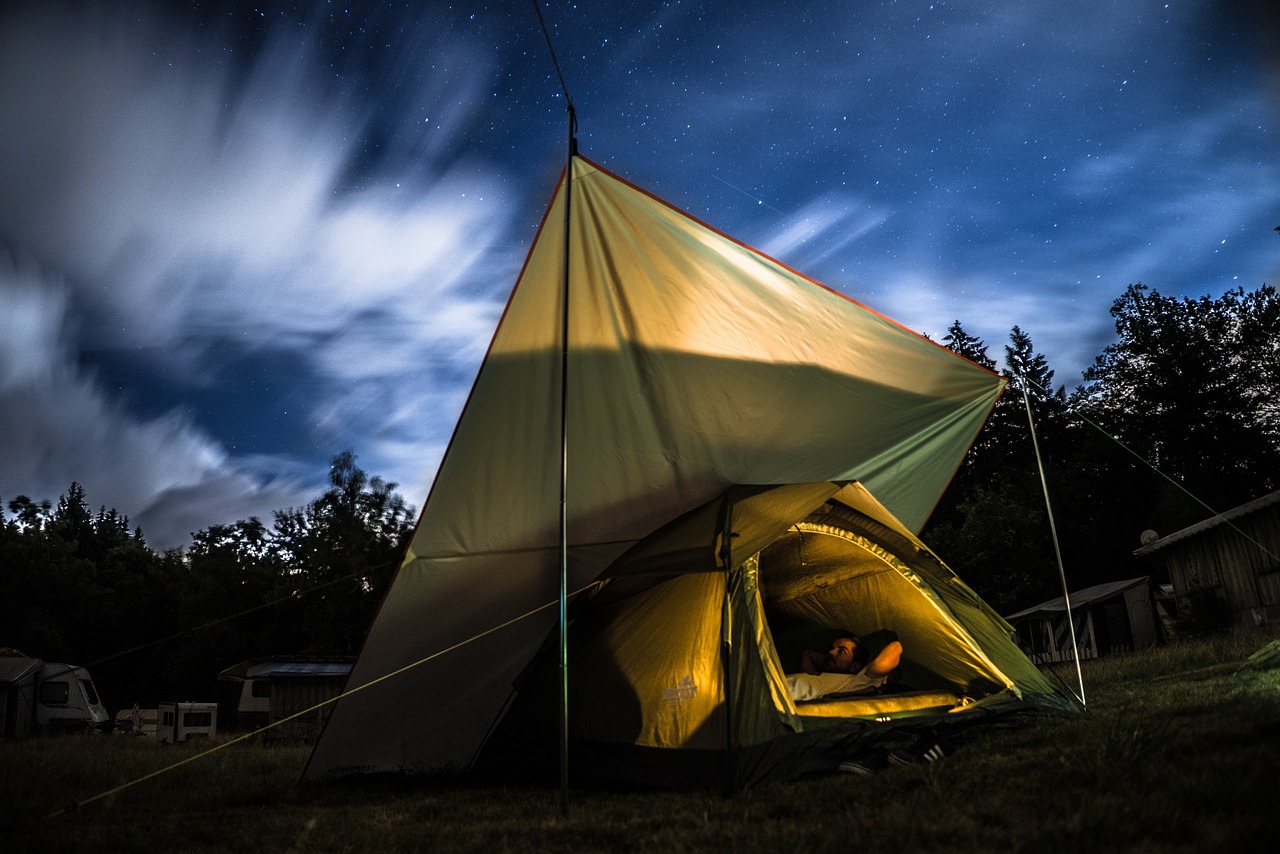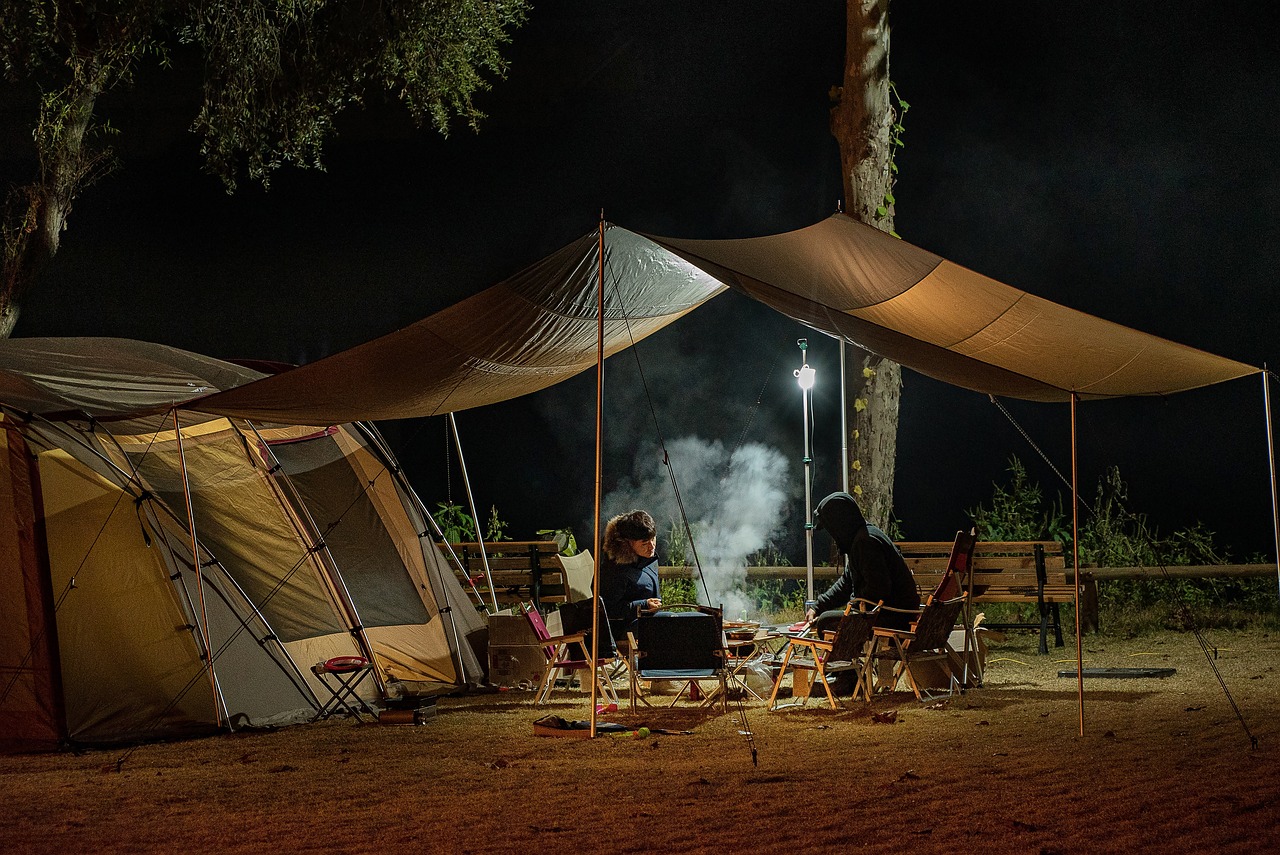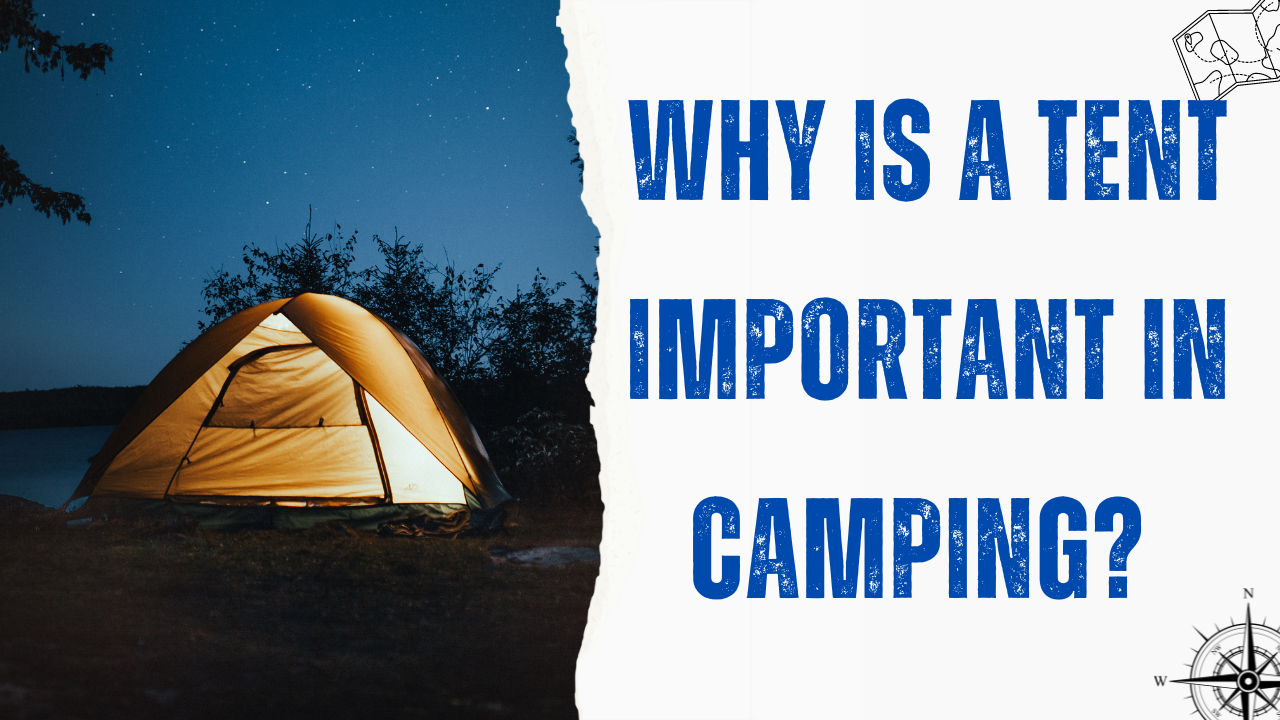Camping is a beloved outdoor activity that allows us to reconnect with nature, escape the hustle and bustle of daily life, and create lasting memories with friends and family. At the heart of any successful camping trip lies one crucial piece of equipment: the tent. This versatile shelter serves as a home away from home, providing protection, comfort, and a sense of security in the great outdoors. In this comprehensive guide, we’ll explore the many reasons why a tent is essential for camping, delving into its various functions, benefits, and the role it plays in enhancing the overall camping experience.
Protection from the Elements
Shelter from Rain and Wind
One of the primary reasons a tent is crucial for camping is its ability to protect campers from adverse weather conditions. Rain and wind can quickly turn a pleasant outdoor experience into a miserable one if you’re not adequately prepared. A well-designed tent acts as a barrier against these elements, keeping you dry and shielded from gusty winds that can chill you to the bone.
Modern tents are engineered with waterproof materials and seam-sealed construction to prevent water from seeping in during rainstorms. Many also feature rainflies, which provide an additional layer of protection against precipitation. The tent’s structure is designed to withstand strong winds, with sturdy poles and guy lines that help maintain its shape and stability even in blustery conditions.
By providing a reliable shelter from rain and wind, a tent ensures that you can stay comfortable and enjoy your camping trip regardless of what Mother Nature throws your way. This protection allows you to relax and focus on the beauty of your surroundings without worrying about getting soaked or blown away.

Sun Protection and Temperature Regulation
While protection from rain and wind is crucial, a tent also plays a vital role in shielding campers from the sun’s harsh rays and helping regulate temperature. During hot summer days, the tent’s fabric provides shade and helps create a cooler microclimate inside. This respite from direct sunlight can be a welcome relief, especially during the peak heat of the day.
Many tents are designed with ventilation features such as mesh panels or windows that allow for airflow while still providing protection from insects and other pests. This ventilation helps prevent the interior from becoming stuffy and uncomfortable, even on warm days.
In colder weather, a tent acts as an insulator, trapping body heat and creating a warmer environment inside. When combined with appropriate sleeping bags and insulation, a tent can significantly increase your comfort level during chilly nights in the wilderness.
Privacy and Personal Space
Creating a Home Away from Home
Another essential aspect of a tent’s importance in camping is the privacy and personal space it provides. When you’re out in nature, surrounded by the vastness of the wilderness or sharing a campground with other outdoor enthusiasts, having a designated area to call your own becomes invaluable.
A tent creates a sense of home in the midst of the great outdoors. It serves as a private retreat where you can change clothes, store personal belongings, and enjoy moments of solitude or intimate conversations with your camping companions. This personal space allows you to maintain a sense of comfort and familiarity even when you’re far from the conveniences of home.
For families or groups camping together, a tent can be divided into separate areas for sleeping, storage, and communal activities. This organization helps maintain a sense of order and allows each person to have their own designated space within the shared shelter.
Psychological Comfort and Security
Beyond the physical aspects of privacy, a tent also provides psychological comfort and a sense of security in unfamiliar surroundings. The enclosed space of a tent creates a barrier between you and the outside world, offering a feeling of protection and safety, especially during nighttime hours.
For many campers, particularly those new to outdoor adventures, the tent serves as a familiar and comforting anchor in an otherwise unfamiliar environment. It becomes a safe haven where you can retreat if you feel overwhelmed by the wilderness or simply need a moment to regroup and relax.
This sense of security is especially important for families camping with young children. A tent provides a controlled environment where parents can keep a watchful eye on their little ones and create a sense of routine and normalcy even in the midst of an outdoor adventure.

Protection from Insects and Wildlife
Keeping Bugs at Bay
One of the most appreciated functions of a tent during camping trips is its ability to keep insects and other small pests at bay. Mosquitoes, flies, ticks, and other bothersome critters can quickly turn a peaceful camping experience into an itchy, uncomfortable ordeal.
Modern tents are designed with fine mesh screens on windows, doors, and ventilation panels to allow for airflow while preventing even the tiniest insects from entering. This protective barrier ensures that you can enjoy the sounds and smells of nature without being subjected to constant buzzing, biting, or stinging from unwanted visitors.
The importance of this protection cannot be overstated, especially in areas where insect-borne diseases are a concern. By providing a bug-free zone for sleeping and relaxing, a tent significantly enhances your comfort and peace of mind during camping trips.
Wildlife Deterrent
While encounters with wildlife can be thrilling and memorable aspects of camping, it’s important to maintain a safe distance from animals in their natural habitat. A tent serves as a physical barrier between you and the local wildlife, providing an added layer of protection and peace of mind.
The enclosed space of a tent helps mask human scents and sounds, making it less likely for curious animals to investigate your campsite. Additionally, the visual barrier created by the tent’s walls can deter animals from approaching too closely, reducing the likelihood of unexpected encounters.
It’s important to note that proper food storage and campsite cleanliness are still crucial for minimizing wildlife interactions. However, a tent provides an additional safeguard, allowing you to rest more comfortably knowing you have a secure shelter to retreat to if necessary.
Gear Organization and Protection
Creating a Dry and Organized Living Space
A tent serves as more than just a sleeping area; it’s also a crucial component in keeping your camping gear dry, organized, and easily accessible. The interior of a tent provides a sheltered space where you can store clothing, sleeping bags, electronics, and other essential items, protecting them from moisture, dust, and potential damage.
Many tents feature built-in storage pockets, gear lofts, and vestibules that help maximize organization and keep your belongings off the ground. This organization not only makes it easier to find what you need when you need it but also helps maintain a tidy and comfortable living space during your camping trip.
By keeping your gear dry and organized, a tent helps prolong the life of your equipment and ensures that you have access to essential items when you need them most. This level of organization can greatly enhance your overall camping experience and make your outdoor adventures more enjoyable and stress-free.
Protecting Valuable Equipment
For campers who bring valuable or sensitive equipment such as cameras, smartphones, or GPS devices, a tent provides a secure and dry place to store these items when they’re not in use. The shelter offered by a tent can protect delicate electronics from unexpected rain showers, morning dew, or accidental splashes near water sources.
Additionally, the privacy provided by a tent allows you to leave certain items “at home” in your campsite while you explore the surrounding area, knowing they’re protected from the elements and hidden from view.

Extending the Camping Season
Three-Season Versatility
One of the most significant advantages of using a tent for camping is the ability to extend your outdoor adventures beyond the warm summer months. Three-season tents are designed to provide comfortable shelter in spring, summer, and fall, allowing you to enjoy camping trips during a broader range of weather conditions.
These versatile tents typically feature a balance of ventilation and insulation, with the ability to adapt to varying temperatures and weather patterns. By providing protection from rain, wind, and cooler temperatures, a good three-season tent enables you to comfortably camp in early spring when wildflowers are blooming or in late fall when the foliage is at its most colorful.
The extended camping season made possible by a reliable tent allows outdoor enthusiasts to experience nature in all its seasonal glory, from the first signs of spring to the vibrant colors of autumn.
Winter Camping Possibilities
For the most adventurous campers, four-season tents open up the possibility of winter camping experiences. These specialized tents are designed to withstand harsh winter conditions, including heavy snowfall and strong winds.
While winter camping requires additional skills and preparation, a properly designed four-season tent makes it possible to enjoy the serene beauty of snow-covered landscapes and the unique challenges of cold-weather camping. These tents typically feature stronger poles, more durable fabrics, and additional guy lines to provide stability in extreme conditions.
By enabling camping in a wider range of seasons and weather conditions, tents play a crucial role in expanding the possibilities for outdoor adventures and allowing campers to experience nature in all its diverse forms.
FAQs (Frequently Asked Questions)
Q: How do I choose the right tent for my camping needs?
A: Consider factors such as the number of people, seasons you’ll be camping in, weight and packability, and your budget. Research different tent types and read reviews to find the best option for your specific requirements.
Q: How do I properly care for and maintain my tent?
A: Clean your tent after each trip, allow it to dry completely before storage, and avoid storing it in damp areas. Regularly inspect seams and zippers, and use appropriate cleaning products to maintain the tent’s waterproofing and durability.
Q: Can I use a tarp instead of a tent for camping?
A: While tarps can provide basic shelter, they lack many of the benefits of a tent, such as insect protection, privacy, and ease of setup. Tarps are better suited for experienced campers or as additional shelter in conjunction with a tent.
Q: How long should a good quality tent last?
A: With proper care and maintenance, a high-quality tent can last anywhere from 5 to 15 years, depending on frequency of use and storage conditions. Regular maintenance and careful handling can significantly extend a tent’s lifespan.
Q: Are expensive tents always better than budget options?
A: Not necessarily. While higher-priced tents often offer better materials and features, many budget-friendly options provide excellent value for casual campers. Consider your specific needs and usage frequency when deciding on your budget.
Q: How do I choose the right size tent for my group?
A: As a general rule, choose a tent with a capacity rating one or two people higher than your group size to ensure comfortable space for gear storage. Consider factors like height, sleeping arrangements, and desired personal space when selecting tent size.
Q: Can I use my backpacking tent for car camping?
A: Yes, backpacking tents can be used for car camping. However, since weight is less of a concern when car camping, you may prefer a larger, more feature-rich tent for added comfort and space.
Q: How do I set up a tent in windy conditions?
A: Start by finding a sheltered spot if possible. Set up the tent with its lowest, most aerodynamic end facing the wind. Use all available guy lines and stakes to secure the tent, and consider using additional weights or rocks to reinforce the stakes in very windy conditions.
Final Words
A tent is an indispensable piece of equipment for any camping adventure, serving multiple crucial functions that enhance safety, comfort, and enjoyment in the great outdoors. From providing essential protection against the elements to creating a private and organized living space, a tent transforms a patch of wilderness into a home away from home.











